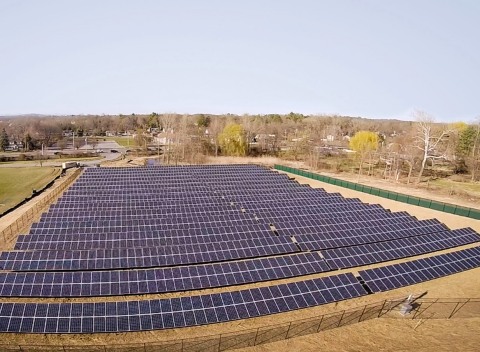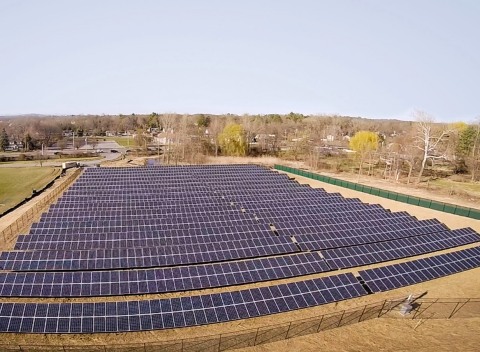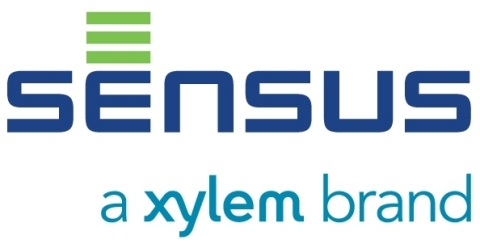RALEIGH, N.C.--(BUSINESS WIRE)--Alternative energy powers innovation at Central Hudson Gas & Electric Corporation. Homes with rooftop solar panels and expansive, commercial solar farms are part of the utility’s 2,600 square-mile service area between the northern New York City suburbs and the state capital of Albany. Technology has helped the utility seize the opportunity for new grid controls while ensuring quality and reliability as demand evolves.
Central Hudson established its distributed generation program within the broader context of New York State’s energy plan to foster an innovative, clean energy economy. The program brought new possibilities and incentives to customers but also introduced a few challenges.
“You can’t advance sustainability at the expense of efficiency or reliability,” said Central Hudson’s Smart Grid Team Leader Kevin Post. “We needed to make sure we had the right level of visibility and control over our grid.”
The utility found their solution with longtime partner, Sensus, a Xylem brand, and their Remote Telemetry Module™ (RTM II), a wireless communication processing tool. Initially deployed to monitor grid conditions and protect against outages, Central Hudson has expanded the solution to include capabilities for Distribution Automation (DA) to optimize assets across their evolving network.
As solar farms grew in their service area, Central Hudson recognized the potential for excessive grid backflow and overvoltage that could cause system damage. Wanting to protect their infrastructure and mitigate potential issues in a simple and cost-effective way, their engineering team came up with a design for a direct transfer trip, or (DTT) system that would merge communications from the interoperable RTM II with circuit breakers and reclosers. The system would automatically isolate a Distributed Energy Resource (DER), or small-sized power generation unit, when a condition exists that can lead to excessive reverse power flow or overvoltage is detected and help ensure grid stability.
“It’s a simple design that required little hardware or investment for set up,” said Central Hudson Engineer Ryan Yakush. “So we recognized the potential to launch the solution on a large scale.”
After successful testing, Central Hudson moved forward with a rollout of the DTT system in their northeast region. The solution has now been installed across five solar farms with sizes ranging from two to five megawatts. The team anticipates that the ease of configuring the system will make it easy to add more installations in the future.
“I want other utilities to be aware of this product and how simple it makes things,” said Post. “Instead of a frustrating experience trying to figure out how to accomplish your challenges, you can use this technology. It just works.”
Utilities across the United States are facing similar challenges as Central Hudson – balancing state mandates to move toward more renewable energy with budget and operational challenges. “Central Hudson’s distributed generation program is a great model for how utilities can maximize their technology investments while advancing clean energy,” said Colin Sabol, President, Measurement and Control Solutions at Xylem. “Sustainable technology must be affordable and scalable – just like this program.”
Read the case study to learn how Central Hudson built a solution to help enable a sustainable future.
About Sensus
Sensus helps a wide range of public service providers—from utilities to cities to industrial complexes and campuses—do more with their infrastructure to improve quality of life in their communities. We enable our customers to reach farther through the application of technology and data-driven insights that deliver efficiency and responsiveness. We partner with them to anticipate and respond to evolving business needs with innovation in sensing and communications technologies, data analytics and services. Learn more at sensus.com and follow @SensusGlobal on Facebook, LinkedIn, Twitter and Instagram.
About Xylem
Xylem (XYL) is a leading global water technology company committed to solving critical water and infrastructure challenges with technological innovation. Our more than 16,000 diverse employees delivered revenue of $5.25 billion in 2019. We are creating a more sustainable world by enabling our customers to optimize water and resource management, and helping communities in more than 150 countries become water-secure. Join us at www.xylem.com.




